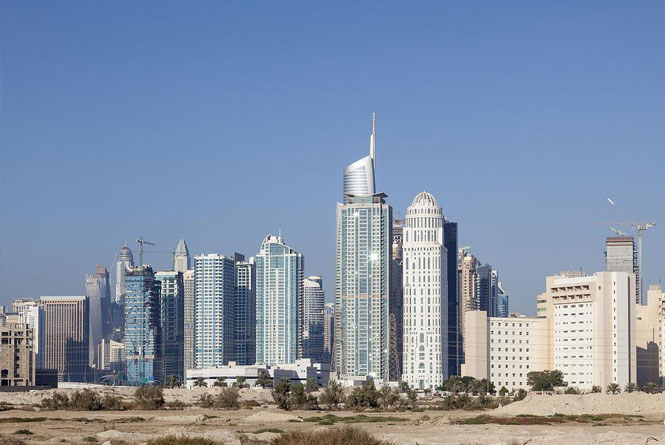The United Arab Emirates (UAE) stands as a beacon of economic opportunity, attracting entrepreneurs and established businesses worldwide with its strategic location, world-class infrastructure, and business-friendly policies. For those seeking to establish a significant presence and tap directly into the vast UAE domestic market and wider GCC region, forming a Limited Liability Company (LLC) on the UAE mainland is often the premier choice. This comprehensive guide delves into the intricacies of LLC company formation in UAE, providing you with the essential knowledge to navigate this rewarding process.

The LLC (Limited Liability Company) is the most prevalent and versatile legal structure for conducting business on the UAE mainland. Governed primarily by Federal Law No. (32) of 2021 concerning Commercial Companies (and its amendments), this structure offers a compelling blend of operational freedom and investor protection. Here’s why it’s so popular:
Limited Liability: As the name suggests, the liability of shareholders (partners) is limited to their capital contribution in the LLC. Personal assets are generally protected from business debts and obligations, a fundamental advantage for risk management in company formation UAE.
Local Market Access: Unlike Free Zone entities, a mainland LLC allows you to trade directly and without restrictions within the UAE's local market, bid for lucrative government contracts, and establish physical offices anywhere in the Emirates.
Credibility and Trust: A mainland LLC UAE carries significant prestige and credibility with local customers, suppliers, and financial institutions, enhancing your brand reputation.
Multiple Shareholders: An LLC can be formed with a minimum of 2 and a maximum of 50 shareholders (individuals or corporate entities).
100% Foreign Ownership: Landmark reforms, particularly UAE Cabinet Resolution No. (55) of 2021, have eliminated the previous requirement for a UAE national to hold 51% ownership in most commercial activities. LLC company formation in UAE now permits 100% foreign ownership across a vast majority of sectors, a game-changer for international investors.
Flexibility: The LLC structure is suitable for a wide range of activities – trading, manufacturing, services, consultancy, hospitality, and more (subject to licensing).
Opting for LLC company formation UAE unlocks numerous strategic benefits:
Unrestricted Market Access: Conduct business freely across all seven Emirates and the wider GCC region.
Government Tenders: Eligibility to bid for and secure valuable government and semi-government contracts.
Banking and Finance: Easier access to local banking facilities, loans, and credit lines compared to some Free Zone entities.
Sponsorship and Visas: Ability to sponsor employees and their families for UAE residency visas, with greater flexibility in numbers compared to many Free Zones.
Physical Presence: Freedom to open multiple branches, showrooms, warehouses, or offices anywhere on the UAE mainland without additional licensing hurdles (though location-specific approvals may apply).
Repatriation of Profits: Full freedom to repatriate capital and profits back to your home country.
Tax Efficiency: Currently, no federal corporate income tax on most mainland LLC profits (though Corporate Tax was introduced in June 2023 at 9% for profits exceeding AED 375,000, effective for financial years starting on or after June 1, 2023). No personal income tax. Competitive customs duties.
Strategic Location: Leverage the UAE’s position as a global logistics and trade hub connecting East and West.

While specific requirements might vary slightly between Emirates (Dubai, Abu Dhabi, Sharjah, etc.), the core process for LLC company formation UAE follows these essential steps:
Determine Activity and Legal Structure:
Precisely define your business activities (consultancy, trading, manufacturing, etc.).
Finalize the number of shareholders and their ownership percentages.
Confirm that your chosen activity permits 100% foreign ownership or identify any potential requirements for a UAE partner (mandatory for a few restricted activities).
Choose between a Standard LLC or a Sole Establishment LLC (for a single shareholder, subject to specific conditions and approvals).
Select a Trade Name:
Choose a unique and appropriate trade name adhering to UAE naming conventions (avoiding offensive/religious terms, not implying government affiliation).
Apply for initial approval of the trade name through the Department of Economic Development (DED) portal of the chosen Emirate.
Apply for Initial Approval:
Submit an application for initial approval to the relevant Emirate's DED. This preliminary clearance indicates the government's 'no objection' to establishing the company under the proposed name and activity.
Draft the Memorandum of Association (MOA):
This is the LLC's constitutional document, defining its structure, activities, capital, shareholder rights and obligations, management, and dissolution procedures.
It must be drafted meticulously, often requiring legal assistance, and signed by all shareholders before a UAE Notary Public. The MOA stipulates the company's legal form as an LLC.
Secure Local Approvals (If Applicable):
Depending on your business activity (e.g., food, healthcare, education, tourism), you may require pre-approvals or No Objection Certificates (NOCs) from relevant government authorities (e.g., Ministry of Health, Ministry of Education, Tourism Department).
Select a Business Premises:
Secure a physical office address or warehouse space within the chosen Emirate. This is mandatory for mainland LLC company formation UAE. A tenancy contract (Ejari in Dubai) registered with the relevant authorities is required. Virtual offices are generally not permissible for mainland LLCs.
Obtain the DED License:
Submit the final application package to the DED, including:
Approved Trade Name Certificate
Initial Approval
Notarized MOA
Passport copies and visa pages of shareholders and managers
Approved Local Approvals/NOCs (if applicable)
Tenancy Contract (Ejari)
External Approval (for specific activities)
Pay the relevant DED licensing fees.
Upon approval, the DED issues the Commercial Trade License, the primary document authorizing your LLC to operate.
Register with the Chamber of Commerce:
Register your new LLC UAE with the local Chamber of Commerce & Industry in your Emirate. This is typically part of the DED process but may involve a separate fee.
Corporate Bank Account Opening:
Approach UAE banks to open a corporate bank account. Requirements are stringent and typically include the company license, MOA, shareholder/director passports and visas, proof of address, and detailed business information. Patience and thorough preparation are key.
Visa Processing:
Apply for residency visas for the company's shareholders, managers, and employees through the General Directorate of Residency and Foreigners Affairs (GDRFA). This involves medical testing, Emirates ID registration, and visa stamping. Your LLC UAE acts as the sponsor.
The UAE Commercial Companies Law (Article 82) mandates a minimum share capital for LLC company formation UAE. However, a crucial development is that the minimum amount is no longer strictly defined by the law in many cases. Instead:
Adequacy Principle: The share capital must be "sufficient to achieve the company's objectives." The specific amount is determined during the LLC setup process and stated in the MOA.
Practical Considerations: While there's no universal fixed minimum (like the previous AED 300,000), the DED and banks will assess the proposed capital based on:
The nature and scale of the business activities.
Projected operational costs.
Visa quota requirements (capital can influence the number of visas granted).
Requirements of external authorities (for specific licensed activities).
Bank requirements for account opening and credit facilities.
Capital Contribution: Share capital can be contributed in cash or in-kind (assets). If contributed in-kind, a valuation report from a licensed UAE valuer is mandatory.
Flexibility: This shift offers greater flexibility, allowing businesses to set a realistic capital based on their actual needs, making LLC company formation UAE more accessible, especially for SMEs and service-based businesses. Capital can range significantly but must be justifiable.
The DED Commercial Trade License is the cornerstone authorization for your LLC UAE. Key aspects include:
License Types: Licenses are categorized based on the primary activity:
Commercial License: For trading activities (buying/selling goods).
Professional License: For service providers, professionals, artisans, craftsmen.
Industrial License: For manufacturing or industrial activities (often requires additional approvals from the Ministry of Industry and Advanced Technology).
Tourism License: For travel agencies, tour operators, hotel management (requires approval from the relevant Tourism Department).
Agricultural License: For farming and related activities.
Activity Codes: Your license will list specific activity codes corresponding to the services or products you offer. It's vital to include all intended activities.
Additional Permits: Beyond the DED license, you may need:
Municipal Permits: For signage, specific operations (like cafes, salons), health and safety compliance.
Environmental Permits: For activities with potential environmental impact.
Industry-Specific Permits: E.g., from the Ministry of Health (clinics, pharmaceuticals), Knowledge and Human Development Authority (KHDA - education in Dubai), Telecommunications and Digital Government Regulatory Authority (TDRA - IT/telecom services).
Renewal: LLC licenses are typically valid for one year and must be renewed annually before expiry. Renewal involves submitting updated documents and paying renewal fees to the DED and other relevant authorities.
Establishing your LLC is just the beginning. Maintaining good standing requires diligent adherence to ongoing compliance obligations:
License Renewal: Ensure timely annual renewal of your DED trade license and any associated permits.
Office Space Maintenance: Maintain a valid physical office lease registered with the relevant authority (e.g., Ejari in Dubai).
Financial Record Keeping: Maintain accurate and up-to-date financial records according to acceptable accounting standards.
Annual Audits: While not mandatory for all mainland LLCs by the DED itself, it is often required:
By specific regulatory authorities (e.g., for certain activities).
By banks for financing facilities.
By shareholders as stipulated in the MOA.
Crucially, for compliance with UAE Corporate Tax regulations (financial statements are core tax records).
Corporate Tax Compliance: With the introduction of Federal Corporate Tax (effective for financial years starting on or after June 1, 2023), LLC companies must:
Register for Corporate Tax with the Federal Tax Authority (FTA).
Maintain comprehensive financial records.
File Corporate Tax returns annually.
Pay any tax due (9% on taxable profits exceeding AED 375,000).
Value Added Tax (VAT): If your LLC UAE exceeds the mandatory VAT registration threshold (AED 375,000 taxable supplies in the past 12 months or expected in the next 30 days), you must register for VAT with the FTA, charge VAT on taxable supplies, file periodic VAT returns, and remit due VAT.
Economic Substance Regulations (ESR): If your LLC undertakes "Relevant Activities" (e.g., banking, insurance, investment fund management, lease-finance, headquarters, shipping, holding company, intellectual property, distribution & service center), it must meet ESR requirements, including filing annual notifications and reports demonstrating adequate substance in the UAE.
Employee Compliance: Adherence to UAE Labor Law regarding employment contracts, wages, benefits, working hours, holidays, termination procedures, and securing valid work permits and Emirates IDs for employees.
Data Protection: Comply with the UAE's Personal Data Protection Law.
Anti-Money Laundering (AML) Compliance: Implement robust AML/CFT policies and procedures as required by UAE law and Central Bank regulations, including appointing a Compliance Officer, conducting due diligence, and reporting suspicious transactions.
LLC company formation in UAE presents an unparalleled opportunity for businesses seeking a robust presence in one of the world's most dynamic economies. The combination of limited liability protection, the revolutionary 100% foreign ownership allowance across most sectors, unrestricted access to the local and regional markets, and a favorable tax environment makes the mainland LLC an incredibly attractive proposition.
While the process involves navigating specific steps – from choosing a name and drafting the MOA to securing premises, obtaining the DED license, and opening bank accounts – the long-term benefits are substantial. Understanding the nuances of share capital adequacy, securing the correct licenses and permits, and, crucially, committing to rigorous ongoing compliance (especially with Corporate Tax, VAT, and ESR) are fundamental to sustainable success.
Embarking on LLC company formation UAE requires careful planning and often expert guidance from business setup consultants and legal professionals familiar with the latest regulations. By thoroughly preparing and adhering to the requirements, you can successfully establish and grow your LLC UAE, positioning your business to thrive at the heart of the Middle East's premier commercial hub. The gateway to opportunity is open.










Zhuoxin Consulting relies on its Chinese service network and Dubai executive team to provide professional one-stop business services without communication barriers for Chinese companies to enter the Middle East market. Its business covers company establishment and maintenance, accounting and taxation, bank account opening, PRO services and business services.
Zhuoxin Consulting has high-quality business resources and maintains close cooperation with many free zones, bankers and tax departments in the UAE to escort your expansion in the Middle East market.
 Add WeChat
Add WeChat